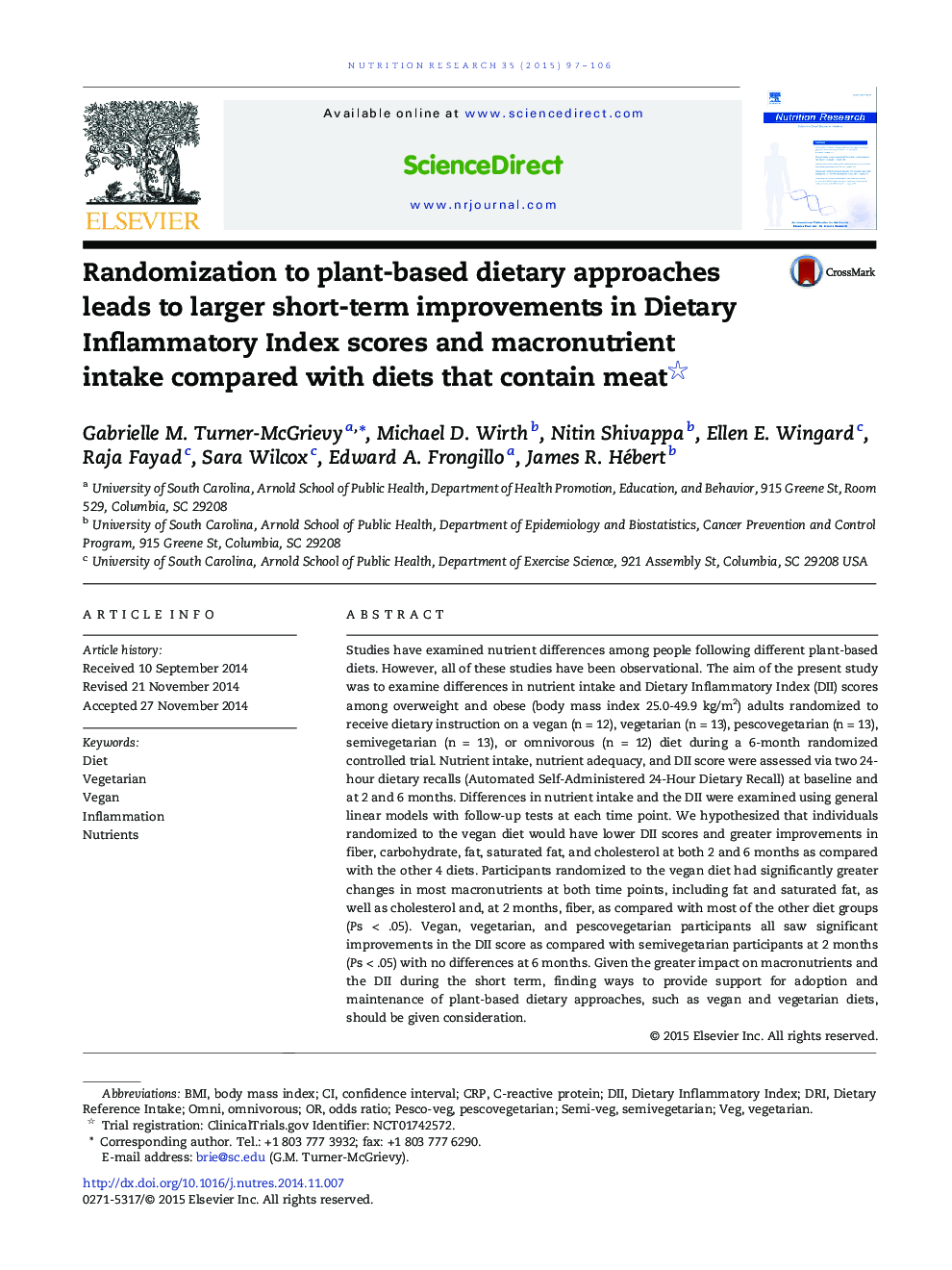| Article ID | Journal | Published Year | Pages | File Type |
|---|---|---|---|---|
| 5904535 | Nutrition Research | 2015 | 10 Pages |
Studies have examined nutrient differences among people following different plant-based diets. However, all of these studies have been observational. The aim of the present study was to examine differences in nutrient intake and Dietary Inflammatory Index (DII) scores among overweight and obese (body mass index 25.0-49.9 kg/m2) adults randomized to receive dietary instruction on a vegan (n = 12), vegetarian (n = 13), pescovegetarian (n = 13), semivegetarian (n = 13), or omnivorous (n = 12) diet during a 6-month randomized controlled trial. Nutrient intake, nutrient adequacy, and DII score were assessed via two 24-hour dietary recalls (Automated Self-Administered 24-Hour Dietary Recall) at baseline and at 2 and 6 months. Differences in nutrient intake and the DII were examined using general linear models with follow-up tests at each time point. We hypothesized that individuals randomized to the vegan diet would have lower DII scores and greater improvements in fiber, carbohydrate, fat, saturated fat, and cholesterol at both 2 and 6 months as compared with the other 4 diets. Participants randomized to the vegan diet had significantly greater changes in most macronutrients at both time points, including fat and saturated fat, as well as cholesterol and, at 2 months, fiber, as compared with most of the other diet groups (Ps < .05). Vegan, vegetarian, and pescovegetarian participants all saw significant improvements in the DII score as compared with semivegetarian participants at 2 months (Ps < .05) with no differences at 6 months. Given the greater impact on macronutrients and the DII during the short term, finding ways to provide support for adoption and maintenance of plant-based dietary approaches, such as vegan and vegetarian diets, should be given consideration.
